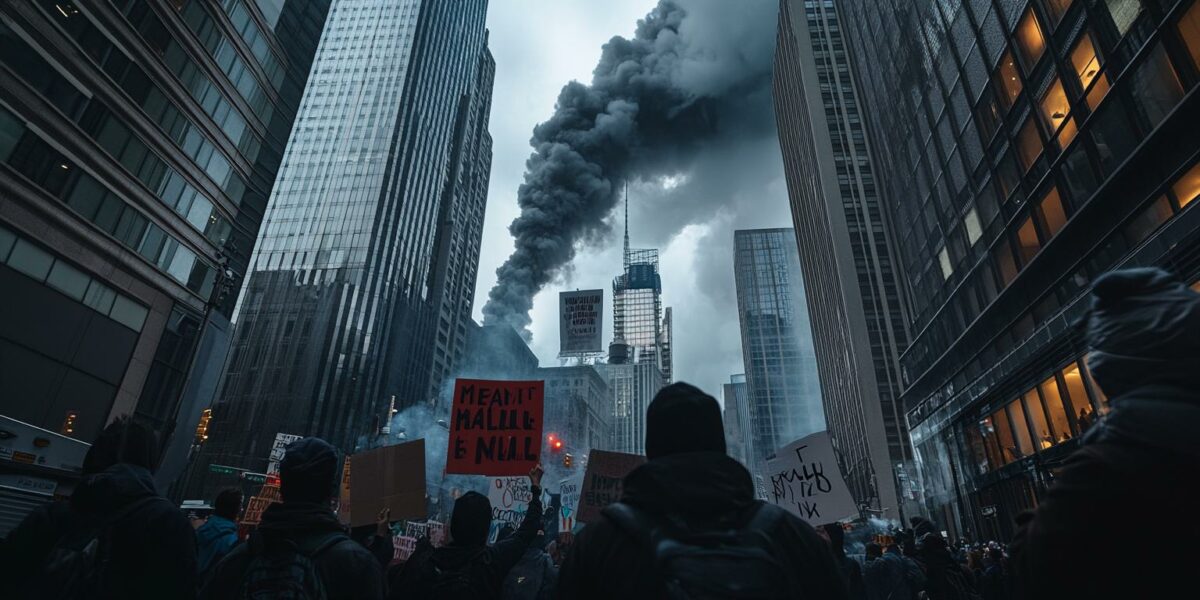Wall Street’s Climate Promises: A Retreat
In a surprising shift, major financial institutions are rolling back on their climate commitments made in 2020 and 2021. Big banks like Citi and BlackRock are now hesitant to enforce stringent climate policies, citing political and economic pressures as primary reasons for their retreat.
Climate advocates are alarmed, pointing out that these financial giants have significant power to drive change. Yet, the lure of short-term profits and political backlash are pushing them to backtrack. This reversal poses a grave risk to global climate goals and efforts to reduce greenhouse gas emissions.
Citibank’s recent meeting with climate protesters highlighted this growing divide. Activists were disappointed when Citi executives refused to halt financing for new liquefied natural gas projects, deeming such requests as unrealistic in the current political climate.
Despite public commitments, the actions of these banks suggest a troubling trend. Wall Street’s reluctance to act decisively on climate issues may undermine global efforts to combat climate change, leading to severe economic and environmental consequences.
The Political and Economic Backdrop
US firms are under immense pressure from Republican politicians who criticize climate initiatives as “woke” capitalism. GOP officials claim that financial institutions’ participation in climate alliances amounts to collusion against fossil fuels, a narrative that influences Wall Street’s decisions.
The war in Ukraine exacerbated this issue, with soaring gas prices leading to record profits for oil and gas companies. This situation incentivizes banks to continue supporting fossil fuel projects, despite their public climate commitments.
Adair Turner of the Energy Transitions Commission notes that political backsliding leads to corporate backsliding. This interdependence between political will and corporate action makes it challenging to achieve climate goals in the current environment.
The oil and gas industry’s recovery post-COVID-19 also plays a role. Banks like BlackRock and Bank of America initially embraced climate risk management, but recent actions suggest a shift in priorities.
Implications for Global Climate Goals
Wall Street’s backtracking has significant implications for global climate goals. Financial institutions are crucial in driving the transition to renewable energy, but their reluctance to cut ties with fossil fuels hampers progress.
- Banks argue that without governmental policies, their efforts are limited.
- Asset managers face challenges as clients have diverse priorities.
- The political climate further complicates decisive action.
Despite these challenges, climate advocates emphasize the need for transparency and accountability. Agreements like the one reached by New York City’s comptroller with major banks highlight the importance of monitoring investments in clean energy versus fossil fuels.
Such measures are critical to assess which institutions are genuinely committed to reducing emissions and which are not.
The Economic and Environmental Costs
As fossil fuel production rises, so do the associated risks. Extreme weather events like hurricanes, floods, and wildfires are becoming more frequent and costly, causing significant property damage and economic losses.
The global economy stands to lose a substantial portion of its GDP due to climate change. A working paper by the National Bureau of Economic Research estimates a 12% GDP loss for every degree Celsius increase above 1950s levels. Such projections underscore the paradox of Wall Street’s continued support for fossil fuels.
Oil and gas production must decline significantly by 2030 to meet climate goals. However, the current trajectory indicates otherwise. This disconnect between production and climate targets raises concerns about future economic stability.
Governments must step in to enforce stricter regulations and drive the transition to renewable energy. Without decisive action, the cycle of promise making and backtracking will continue, endangering both the economy and the planet.



Gabriel
Isn’t it ironic? They think short-term gains are worth the long-term losses. 🤦♂️
Oreo
Can we really expect Wall Street to lead the way on climate issues?
asher
Ugh, another example of corporate greed. When will it end?
ginger_genesis
Great article! But I’m curious, how can political pressure be this influential?
penelope
Seriously, they need to get their act together. We’re running out of time!
jasmine
What can we, as consumers, do to hold these institutions accountable?
Serenity
Is anyone surprised that profits win over planet? Wall Street being Wall Street.
whiskey_catalyst1
Thanks for bringing this to light! We need more awareness around these issues. 🌍
jasmineillumination
Wow, this is really disappointing. Why are these banks so short-sighted?